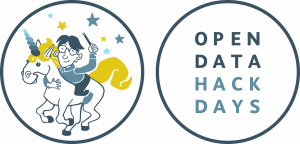Guest Card Lucerne
Develop a concept for the expansion of data generation and data use of the Guest Card Lucerne
##Challenge
With the Guest Card Lucerne, overnight guests in Lucerne benefit from the following offers:
- Public transport: Free use of buses and trains in fare zone 10 in the city of Lucerne
- Activities: Various discounts for mountain railways, museums and excursions in the Lucerne-Vierwaldstättersee adventure region
- WLAN: free use of WLAN network "Free WiFi - LUZERN.COM" at selected locations
In addition to information on the demographic data of overnight guests, there is currently also data on guest card checks and the devaluation of services and hotel operations. 7 days after the guest's departure, the data is anonymised.
The content of the Challenge "Guest Card Lucerne" is to develop a concept for the expansion of data generation and data use of the Guest Card Lucerne. Let your creativity run free about which guest information could be won, processed and used and how. All with the aim of strengthening the tourism offer of the Lake Lucerne-Vierwaldstättersee Adventure Region and individualising the guest experience.
##Documentation
First, Michael and Domi started with a detailed presentation of the challenge so the whole team could start on the same ground. Then the team brainstormed and elaborated all the relevant stakeholders within the challenge:
a) Tourists/ Visitors b) Lucerne Tourism/ the city of Lucerne c) Service Providers (such as shops, restaurants, cafés/ bars, museums etc. in Lucerne) d) hotels and accommodations and e) public transport.
As a next step each member of the team individually worked out the issues for each and every stakeholder that do/ might exist today and we then collected ideas and potential solutions for these issues (keeping the Guest-Card concept – as it exists today – in mind) by writing everything on post-its and putting them on a whiteboard, in the respective section. After the individual brainstorming session we read through all the different ideas together, discussed and evaluated them section by section and used blue post-its to summarise the collected ideas (and prioritise some of them) in each section (fig.1).
We decided to put the result of the brainstorming-session into a Google Doc and let each team-member document one stakeholder section and also add and list some benefits for the stakeholder, pertaining to the issues and solutions elaborated in the group before. We then read through the document all together, discussed each stakeholder again and agreed on a few adjustments. On the basis of repeated and detailed discussions we were able to narrow down all significant factors to this project and came up with – or rather proved a presupposed – overall solution: a Guest Card Application.
A next big step included figuring out all the important functions the application would need to have in order to realise its full potential. This, among other things, meant identifying all the weaknesses and missing functions of the existing Guest Card. But also, how the application could at the same time satisfy the user's needs AND simplify and improve the collection of data that will be beneficial for further development of the app (and therefore again for the user) and of course, for Lucerne Tourism. Once all the functions were decided, we returned to the remaining stakeholders and made sure that the same functions will have benefits for them as well.
All details of the project are documented in the Google Document (under "Sources" button), which also gives insight to the above described process.
Previous
Open Data Hackdays: Tourism
Next project

